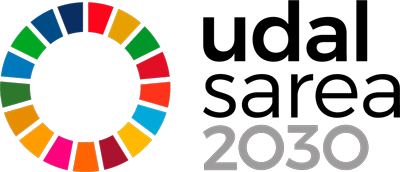
Oficial Programme
THE SOIL PROTECTION SCENARIO
Soil, although a scarce resource, has long been misunderstood and has not been protected in the same way as water or air. However, in recent years, the scenario has changed significantly. Soil conservation has become more and more important both globally and in Europe. Most of the EU’s Sustainable Development Goals affect soil in one way or another and, as part of these goals, Europe is working towards a Soil Monitoring and Resilience Directive, after approving the Soil Protection Strategy 2030. The Basque Country, after working for decades to prevent soil contamination, also has its own strategy for comprehensive soil conservation.
08:30-9:30
Accreditation
09:30-09:45
Institutional opening
Aitor Aldasoro Iturbe, Deputy Minister of Environmental Sustainability.
09:45-10:30
The intangible value of soil. Respect for soil as a guarantee of its protection.
Speaker: Alberto Santana Ezkerra. Historian and Ethnographer and Basque Culture Expert.
10:30-11:00
The contribution of soil protection to the Sustainable Development Goals. Global initiatives
Speaker: Natalia Rodríguez Eugenio: Land and Water Officer. Global Soil Partnership Secretariat. Food and Agriculture Organisation of the United Nations-FAO.
11:00-11:30
Coffee break
11:30-12:30
ROUND TABLE. From Europe to the Basque Country: the European Soil Health Law and soil protection strategies
Moderator: Dietmar Müller-Grabherr, Secretary of the Common Forum on Contaminated Land in Europe.
Participants:
- Ion Codescu. Head of Unit, Directorate-General for Environment. European Commission.
- Alexander Boto Bastegieta. General manager at Ihobe, Public Company for Environmental Management. Basque Government.
- Esther Goidts. Senior advisor within the Soil Protection Direction. SPW ARNE. Wallon Government (Belgium).
- Antonio Callaba. General Subdirectorate of Waste. Ministry for the Ecological Transition and the Demographic Challenge. Government of Spain.
12:30-14:00
CHALLENGE TABLES: Challenges for soil protection in different areas of action.
-
TABLE 1: The role of soil in “the farm to fork” strategy
ROOM 3A
Organising entity: NEIKER, Basque Institute for Agricultural Research and Development.
Moderator: Olatz Unamunzaga. NEIKER, Basque Institute for Agricultural Research and Development.
Presentations:- The CAP as an Instrument of Soil Protection. Pilar
Santamaría, HAZI Foundation.
- Water and Soil Management in Agriculture. Iñigo Virto, Lecturer in
Soil. Science and Agricultural Chemistry. Science Department. Public University of Navarre.
- Rationalisation of Fertiliser Use in Agriculture.
Ana Aizpurua. NEIKER, Basque Institute for Agricultural Research and
Development.
- The Challenge of the Rational Use of Pesticides in the Framework of
Sustainable Agriculture.
Ana Zabalza, Public University of Navarre.
- The CAP as an Instrument of Soil Protection. Pilar
Santamaría, HAZI Foundation.
-
TABLE 2: European Soil Protection Strategy 2030 and proposed Soil Monitoring and Resilience Directive. How to Achieve Healthy Soils by 2050?
ROOM 0E-2
Organising entity: Common Forum on Contaminated Land in Europe.
-
TABLE 3: Land Use Management through Territorial Planning
ROOM 5H
Organising entity: Vice-Ministry of Regional Planning and Urban Agenda of the Basque Government.
Moderator: Lara del Valle, Architect. Unesco Chair of Cultural Landscape and Heritage and Landscape from the University of the Basque Country.
Presentations:- Marta Rozas, Head of the Natural Heritage Service of the Basque
Government.
- Asier Arrese, Territory Manager of Hazi Foundation.
- Leire Urcola, Architect of the Basque Government’s Territorial
Planning and Land Management Service.
- Manuel Borobio, Architect. ABT+ Study Workshop.
- Marta Rozas, Head of the Natural Heritage Service of the Basque
Government.
-
TABLE 4: Soil, an Ally in Climate Change Mitigation and Adaptation
ROOM 0E-1
Organising entity: LIFE Urban Klima 2050 Project.
Moderator: Adolfo Uriarte, Director of Natural Heritage and Climate Change. Basque Government.
Presentations:The Relationship between Adaptation and Mitigation and Soil Protection in the Following Projects:
- SoilSkin. Nagore García, Lecturer in the Biology Department. Autonomous University of Madrid.
- Urban Klima 2050. Malake Muñoz Cachón, Climate
Action Project Officer, Ihobe, Public Environmental Management Company. Basque
Government.
- NAdapta. Rodrigo Antón Sobejano, Professor of Soil Science and Agricultural Chemistry. Public University of Navarre.
- Smart City Valladolid. Alicia Villazan Cabero,
Project Manager of European Innovation Projects. Valladolid City Council.
- Life eCOadapt50. Co-creation of strategic action for adaptation to climate change of local territories and economies. Núria Parpal. Project director. Head of local environmental planning section, Climate Action Area and Energy Transition. Barcelona Provincial Council.
- European Commission. Ion Codescu, Head of Unit. Directorate-General for Environment.
14:00-15:30
Lunch break
15:30-19:00
Experiences and visits
- Txakoli Wine Production at the Urdaibai Biosphere Reserve: Sustainability and Soil Protection (Itsasmendi) (Language: English and Spanish)
Tour guide: Garikoitz Ríos, technical director of Itsasmendi Winery.
The making of Txakoli wine is one of the identifying traits of Basque culture and a socio-economic activity embedded in the territory. The sustainability principles at the wineries you will visit play a key role in protecting the soils used to grow the vines for this typical wine of the Basque Country; the winemaking is traditionally family based and uses mainly native grape varieties, protected by Denomination of Origin and enjoying great international acclaim.Schedule: 15:45 – 19:15
- Txakoli Wine Production at the Urdaibai Biosphere Reserve: Sustainability and Soil Protection (Berroja) (Language: Basque and Spanish)
Tour guide: Jose Ángel Carrero, owner of Bodega Berroja.
The making of Txakoli wine is one of the identifying traits of Basque culture and a socio-economic activity embedded in the territory. The sustainability principles at the wineries you will visit play a key role in protecting the soils used to grow the vines for this typical wine of the Basque Country; the winemaking is traditionally family based and uses mainly native grape varieties, protected by Denomination of Origin and enjoying great international acclaim.
Schedule: 15:45 – 19:15 - Boat Trip along the Bilbao River Estuary: Past and Present of Land and Territory Regeneration (Language: Basque and Spanish)
Tour guide:
Javier Puertas, president of the Basque Association of Industrial Heritage.
Jose Eugenio Villar, vice president of the Basque Industrial Heritage Association.
Bilbao River Estuary was the backbone of Bizkaia’s port, mining and industrial activity for decades. The main artery of the capital of Bilbao and of its metropolitan area, Gran Bilbao, has undergone a far-reaching transformation in recent years; that has greatly contributed to a change of paradigm in the management and restoration of land with a significant environmental burden from its industrial past.Schedule: 15:45 – 18:00
- Begoña Cemetery: Respect as Inspiration to Design a New Common Space (Language: Basque and Spanish)
Tour guide: Anartz Ormaza, architect at TEO Arkitektura and collaborator with the Aranzadi Science Society Aranzadi Zientzia Elkartea.
Begoña cemetery dates back to the 19th century, when the Begoña anteiglesia or parish district was independent from the charter city of Bilbao. It was one of the capital of Bizkaia’s most important cemeteries – and the main one of the Begoña neighbourhood – during the 20th century and into the early 21st. However, due to different circumstances, it has been in a state of neglect for many years now. The historical memory value of this cemetery makes it a place to better understand the history of the Basque Country, but also to see how a change of use can respect and enhance the elements that have shaped this spot over time.Schedule: 15:45 – 18:15
- Zorrozaurre Island; a City Building Challenge (Language: Basque, Spanish and English)
Bisitaren gidaria: Juan Carlos Sinde, Manager of the Zorrotzaurre Management Commission.
The urban regeneration project of this part of Bilbao with a great industrial past – initially designed by the architect Zaha Hahid – has transformed the Zorrozaurre peninsula into an island where residential uses will coexist alongside non-polluting businesses, cultural and social amenities, along with areas to be enjoyed by citizens. The Zorrozaurre regeneration is a comprehensive project based on sustainability criteria; the aim is to restore a currently degraded area where different aspects of sustainable management converge, and which include restoring contaminated land, introducing temporary uses of empty plots, reusing old industrial premises, and climate change adaptation actions.
Schedule: 15:45 – 18:15 - La Arboleda (Meatzaldea): Land and Landscape Shaped by Mining (Language: Basque and Spanish)
Tour guide: Peio Presa Tejero, Ekoetxea Meatzaldea.
La Arboleda was a mining town where the iron ore for the Sestao blast furnaces was quarried. Visiting La Arboleda is a trip back in time to a mining past that began with the Romans. The old open pits are now artificial lakes surrounded by green leisure and recreational areas, while also being an opportunity to showcase the historical legacy still to be found there. In addition to learning about part of the Basque Country’s industrial past, this field trip seeks to highlight the specific traits of a landscape shaped by mining.Schedule: 15:45 – 19:30
- Soil health: a cornerstone of a sustainable agricultural and livestock farm: (Errotik livestock farm) (Language: Basque and Spanish)
Tour guides:
Kepa Aguirregoikoa, Errotik Etxanoko Gaztaie.
Melissa Comellas, responsible for Agriculture projects at EIT Food.
Nerea Mandaluniz, Researcher of the Animal Production Area at Neiker. Basque Institute of Agricultural Research and Development.
The richness and quality of the soil greatly influence the quality of what we eat. Therefore, knowing the characteristics of the farmland, the biodiversity living there, along with the methods used to offer greater quality and sustainability in the final product that reaches the consumer’s table, is fundamental. This type of management is really important to maintaining soil fertility, restoring nutrient, energy and water cycles, as well as guaranteeing the production of sustainable, high-quality food. In addition to being an empowerment tool for the ranchers themselves.
Schedule: 15:45 – 19:30
CONCLUSIONS OF THE CONGRESS
SOIL PROTECTION AND SOCIETAL CHALLENGES
The environment is now considered to be a cross-cutting area and not an issue to be approached by each sector individually. In this scenario, soil protection is seen as something that will help to tackle some of the most important challenges of today’s society. Biodiversity conservation, human health and well-being improvement, adaptation and mitigation of the effects of climate change, and water quality and availability are objectives that are impossible to achieve without comprehensive soil protection, which will be possible thanks to a coordinated effort by all those with soil management competences and capabilities.
09:00-09:45
Geology and soils: a journey back in time to the Anthropocene Epoch
Speaker: Ana María Alonso Zarza. Director of the Geological and Mining Institute of Spain.
09:45-10:05
Watch differently, Think differently, Act differently. Building blocks to work towards the goals of the EU Soil Strategy
Speaker: Margot de Cleen, Senior Soil and Water Policy Advisor. Ministry of Infrastructure and Water Management. Rijkswaterstaat. The Netherlands.
10:05-10:25
One health: There is no Human Health without Soil Health
Speaker: Dario Piselli. Expert in Environment, Human Health and Well-being. European Environmental Agency.
10:25-10:45
The Value of Soil and the Climate Emergency: adaptation and mitigation
Speaker: María José Sanz. Scientific Director at the Basque Centre for Climate Change (BC3). Member of Intergovernmental Panel on Climate Change (IPCC).
10:45-11:05
Soil biodiversity: a hidden and unknown treasure under our feet
Speaker: Carlos Garbisu. Scientific Director. Neiker, Basque Institute of Agricultural Research and Development.
11:05-11:30
Coffee break
11:30-13:30
CHALLENGE TABLES: Challenges for Soil Protection in Different Areas of Action
-
TABLE 1: Reuse of vacant land. Instruments of success
ROOM 0E-2
Organising entities: SPRILUR, Public Company for Industrial Land Management of the Basque Government and Ihobe, Public Environmental Management Company of the Basque Government.
Moderator: Ana Isabel Alzola Echazarra, Basque Soil Protection Strategy responsible, Ihobe, Public Company for Environmental Management. Basque Government.
Presentations:- The Reuse of Vacant Land: a Key Line of Action in the Basque Country’s Land Protection Strategy. Ana Isabel Alzola Echazarra, Ihobe, Public Company for Environmental Management. Basque Government.
- The Reuse of Land for the Development of Economic Activities. An Example from the Administration. Iker Bergaretxe, Deputy Director. Sprilur, Basque Public Company for Industrial Land Management. Basque Government.
- Strategies for the Reuse of Vacant Land in Scotland. David Stewart, Scottish Land Commission.
- Strategies for the Reuse of Vacant Land in Austria-Brownfield Dialoge.
Gundula Prokop, Austrian Environment Agency.
- Natural Recovery and Land Conservation. Javier Vázquez, Ekologistak Martxan.
ACTIVITY: Key Elements to Develop a Roadmap to Incentivise the Reuse of Vacant Land. - The Reuse of Vacant Land: a Key Line of Action in the Basque Country’s Land Protection Strategy. Ana Isabel Alzola Echazarra, Ihobe, Public Company for Environmental Management. Basque Government.
-
TABLE 2: Sustainable Forest Management: an Opportunity to Improve Soil Health
ROOM 3A
Organising entity: HAZI Foundation, HAZI Foundation, Rural, Coastal and Food Development.
Moderator: Alejandro Cantero Amiano. HAZI Foundation, Rural, Coastal and Food Development.
Presentations:- Sustainable Forest Management and Soils in the Basque Country: Basonet Network. Alejandro Cantero Amiano, HAZI Foundation.
- Carbon Storage in Forest Soils in France. Roland de Lary, Director General of the Centre National de la Propriété Forestière.
- Carbon Accumulated in the Layer of Fallen Leaves in Forests.
Ricardo Ruiz Peinado Gertrudix, Senior Scientist at the Institute of Forest Sciences (ICIFOR-INIA) of the CSIC. Spanish National Research Council.
- Proposal for a Soil Monitoring Directive of the European Commission. Guillermo Fernández Centeno, Technical Advisor to the Subdirectorate General for Forestry Policy and Combating Desertification. Ministry of Ecological Transition and the Demographic Challenge. Government of Spain.
- Carbon Content Map of Spanish Forest Soils. Rosa Calvo de Anta, Professor of Soil and Agricultural Chemistry. USC, University of Santiago de Compostela.
- Sustainable Forest Management and Soils in the Basque Country: Basonet Network. Alejandro Cantero Amiano, HAZI Foundation.
-
TABLE 3: How to promote the application of land decontamination technologies
ROOM 0E-1
Organising entity: ACLIMA, Environmental Cluster of the Basque Country.
- OPENING: Institutional Framework for Soil Decontamination and Public-Private Partnership. Javier Agirre Orcajo, Director of Environmental Quality and Circular Economy. Basque Government.
- PRESENTATIONS: Levers to promote the application of recovery technologies
- Flanders (Belgium). Specific Policies, Strategies and Instruments to Encourage Soil Restoration and the Use of On-site Technologies. Johan Ceenaeme, Policy koordinatzailea, Flandriako hondakinen agentzia Publikoa.
- Soil bank: towards the circularity of a valuable resource. Germán Monge, technical director, and Beatriz Ortiz de la Torre Juanas, IDOM.
- How to Promote Innovation in Soil Decontamination through Public Procurement. POSIDON Project. Mikel González Vara, Bilbao City Council.
- Multifunctionality of Reclaimed Soils: Feasible or Fallacious Aspiration? Eduardo Alzola Echazarra, director of the Soil Research and Treatment Area. AFESA.
- Flanders (Belgium). Specific Policies, Strategies and Instruments to Encourage Soil Restoration and the Use of On-site Technologies. Johan Ceenaeme, Policy koordinatzailea, Flandriako hondakinen agentzia Publikoa.
- ROUND TABLE: Present and Future Challenges of Soil
- Moderator: Teresa Tejero, director of the Environment and Occupational Health and Safety Unit. ONDOAN.
- Public institution: Challenges in Soil Contamination in the Basque Country, Levers and Public Instruments (Euskadi Soil Protection Strategy 2030). Maribel Martínez, Head of the Hazardous Waste and Contaminated Soil Service. Basque Government.
- Offer: Capabilities of the Environmental Sector in the Basque Country. Service Development Opportunities. Olga Martín, general director of ACLIMA.
- Demand: Needs of People and Entities Owning Contaminated Land. Aurkene Niño, SPRILUR.
- GROUP DYNAMICS: Levers to enhance the recovery and new uses of contaminated soils.
- Lever 1: BASOINSA – Francisco Murillo (technical director).
- DLever 2: DINAM – Gonzalo Zárate (technical director).
- Lever 3: TEKNIMAP – Lara Arribas (soil inspector).
- Lever 4: LIMIA & MARTIN – Imanol Martín (owner).
-
TABLE 4: Good soil protection practices at a municipal level
ROOM 5H
Organising entity: UDALSAREA 2030, Basque Network of Sustainable Municipalities.
Moderator: Izaro Basurko, Ihobe, Public Company for Environmental Management. Basque Government.
Presentations:
- Land Inventory and Municipal Planning. Mari Jose Imaz, Orduña-Urduna Town Council.
- Soil Quality and Good Practices in Soil Protection in Municipal Planning. Jon Ruiz de Infante, CEA/Vitoria-Gasteiz City Council.
- Municipal Management of the Former Industrial Site of a Paper Mill. Iratxe Arriola, Ea Town Council.
- Actions on Municipal Land and Climate Change. Amets Jaureguizar, Bakio Town Council.
- Drafting of Astigarraga’s PGOU (Land Use Plan) with Land Protection Criteria. Raoul Servet, ARAUDI.
- Drafting of the Peñacerrada PGOU (Land Use Plan) with Land Protection Criteria. Unai Fernandez de Mendia. EGITU.
- Soil Recovery in Forests that Have Withstood a Fire. Cristina Fernández, Regional Government of Galicia.
- Good Practices for the Improvement of Soil Permeability and Biodiversity in the Municipality of Durango. Aitor Larrucea Abad and Igor Zorrakin, Durango Town Council.
- Land Inventory and Municipal Planning. Mari Jose Imaz, Orduña-Urduna Town Council.
13:30-14:15
Young people and soil protection
14:15-14:30
Closing ceremony of the congress
- Mari Mar Alonso Martín. Climate Action manager at Ihobe, Public Company for Environmental Management. Basque Government.
- Alexander Boto Bastegieta. General manager at Ihobe, Public Company for Environmental Management. Basque Government.










